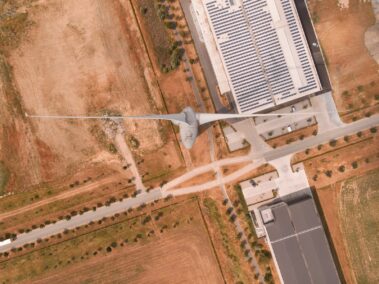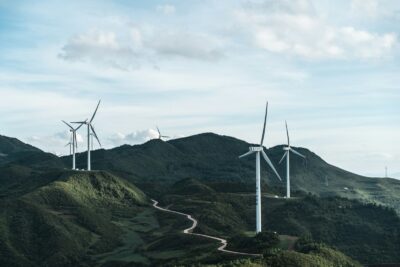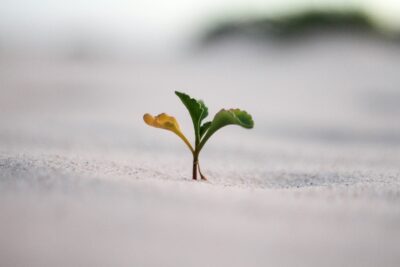Driving Renewable Energy Diversity with Bioenergy Production
Introduction to Bioenergy Production
Technological advancements in bioenergy production are revolutionizing the renewable energy landscape, offering new opportunities for sustainability and environmental conservation. Bioenergy refers to energy derived from organic materials such as plants, crops, and organic waste. Unlike fossil fuels, bioenergy is renewable and emits fewer greenhouse gases, making it a crucial component of efforts to combat climate change.
In regions like Saudi Arabia and the UAE, where the potential for traditional renewable energy sources like solar and wind is significant, bioenergy offers additional benefits. By harnessing organic materials abundant in these countries, such as date palm residues and agricultural waste, bioenergy production contributes to energy diversity and resilience. Riyadh and Dubai are exploring innovative bioenergy technologies to complement their existing renewable energy portfolios and achieve greater energy independence.
Technological Advancements in Bioenergy
Recent years have seen significant progress in the development of technologies for bioenergy production, making it a more viable and efficient energy source. One notable innovation is the use of advanced biofuel production techniques, such as enzymatic hydrolysis and microbial fermentation, to convert biomass into biofuels like ethanol and biodiesel. These biofuels can be used to power vehicles, generate electricity, and provide heat, offering versatile solutions for various energy needs.
Another area of innovation is the utilization of waste-to-energy technologies to convert organic waste into valuable energy resources. Anaerobic digestion and thermal depolymerization are among the processes used to convert organic waste into biogas, bio-oil, and biochar. These technologies not only reduce the environmental impact of waste disposal but also generate renewable energy, contributing to sustainable waste management practices.
Furthermore, advancements in biorefinery technologies enable the production of multiple bio-based products from a single feedstock. Integrated biorefineries can extract value from biomass by producing biofuels, biochemicals, and bioplastics, maximizing resource efficiency and economic viability. This integrated approach is essential for scaling up bioenergy production and creating a circular economy that minimizes waste and maximizes resource utilization.
Benefits and Challenges of Bioenergy Production
The adoption of bioenergy production offers numerous benefits, ranging from environmental sustainability to economic growth. One of the primary advantages is its contribution to reducing greenhouse gas emissions and mitigating climate change. By displacing fossil fuels with renewable biofuels, bioenergy production helps lower carbon emissions, improve air quality, and reduce dependence on finite fossil fuel reserves.
Bioenergy production also enhances energy security by diversifying the energy mix and reducing reliance on imported fuels. In countries like Saudi Arabia and the UAE, which are heavily dependent on fossil fuel imports, developing domestic bioenergy resources strengthens energy independence and resilience to supply disruptions. Additionally, bioenergy projects create jobs in rural areas, stimulate economic development, and support agricultural communities.
However, bioenergy production also poses challenges that need to be addressed to maximize its potential. One such challenge is the competition for land and resources between bioenergy crops and food crops. Balancing the need for bioenergy feedstock production with food security concerns requires careful planning and sustainable land management practices. Furthermore, ensuring the sustainability of bioenergy supply chains, including sourcing, production, and distribution, is essential to prevent negative environmental impacts such as deforestation and habitat loss.
Conclusion: Embracing Bioenergy for a Sustainable Future
In conclusion, technological innovations in bioenergy production hold tremendous promise for enhancing renewable energy diversity and advancing sustainability goals. By leveraging organic materials and cutting-edge technologies, countries like Saudi Arabia and the UAE can tap into their bioenergy potential and reduce their carbon footprint. Riyadh and Dubai are well-positioned to lead the transition to a more diversified and sustainable energy future by investing in bioenergy infrastructure and fostering innovation in green technology.
While challenges exist, such as ensuring sustainability and addressing land-use conflicts, the benefits of bioenergy production far outweigh the drawbacks. By embracing bioenergy as a key component of their energy strategies, Saudi Arabia and the UAE can accelerate their transition towards a low-carbon economy and contribute to global efforts to combat climate change. With continued investment and collaboration, bioenergy has the potential to play a significant role in shaping a more sustainable and resilient future for generations to come.
—
#bioenergyproduction #renewableenergy #sustainability #technologicalinnovations #SaudiArabia #UAE #greenenergy #energydiversity #environmentalconversation #Riyadh #Dubai























